【Start-up x Japanese company】Realisation of a demonstration at a sports club to develop the Japanese market.
AEA driving innovation in the Japanese startup landscape: supporting a joint demonstration project between an AI start-up and a Japanese company.
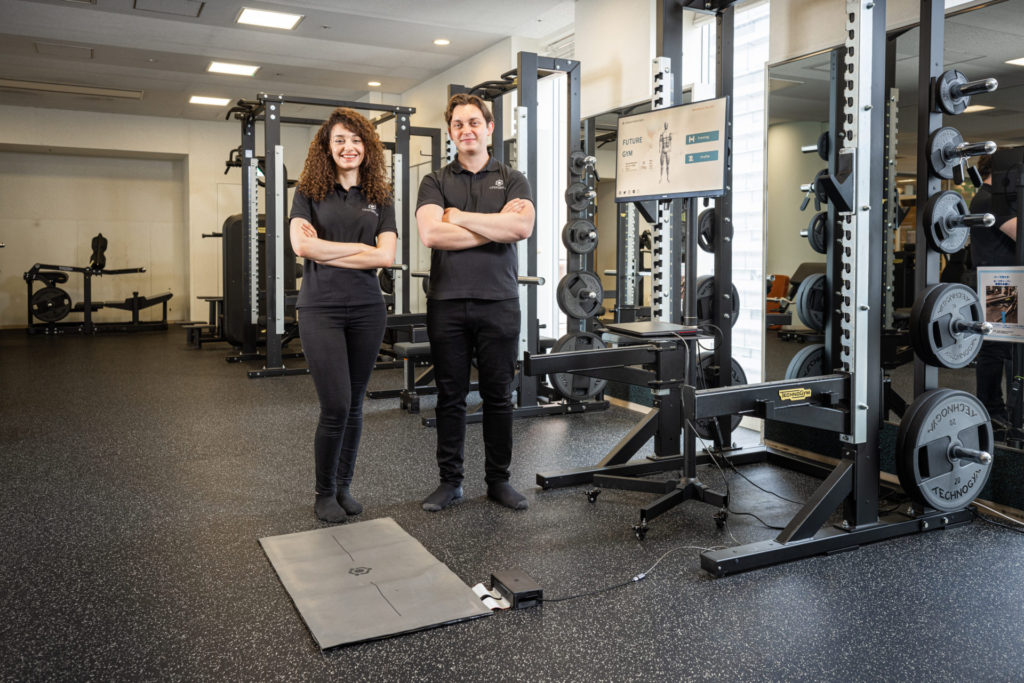
Lifeform AI is an AI health tech start-up founded by graduates of the University of Tsukuba. It was incorporated in Australia and conducts research and developments of AI healthcare and fitness technology in Tsukuba.
The company had the experience of competing in AEA 2021. Despite narrowly missing out on the award, ongoing support from the AEA Steering Committee resulted in a demonstration project with Tokyo Dome Sports Inc. from 20 February to 5 March 2023.
In this edition, we interviewed Dr. Karlos Ishac, CEO of Lifeform AI, Dr. Katia Bourahmoune, COO and AI leader of Lifeform AI, and Ryoko Gotoh, board member of TX Entrepreneur Partners, the general incorporated association that co-organises AEA, and a member of the AEA Steering Committee, to learn more about how AEA we spoke to them about how they supported Lifeform AI and what the AEA means to Lifeform AI.
Profile
Lifeform AI
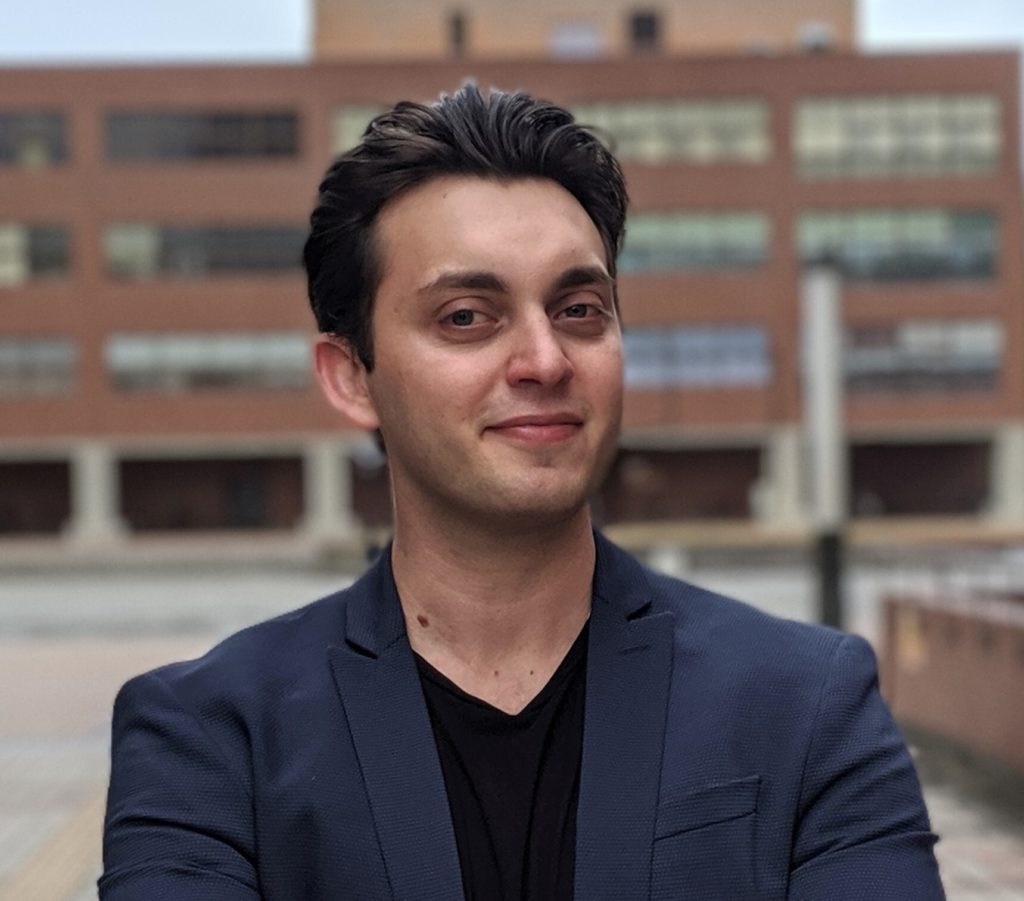
Dr. Karlos Ishac
Lifeform AI CEO
Researcher, Inventor
Pioneer in robotics and cutting-edge technology, with an extensive portfolio of inventions and research achievements; key inventor and business leader of Lifeform AI

Dr. Katia Bourahmoune.
Lifeform AI COO
AI leader and Researcher.
Machine learning and neuroscience expert who pushes the limits of modern AI, leading Lifeform AI’s key strategies and AI developments.
Secretariat of the AEA Steering Committee
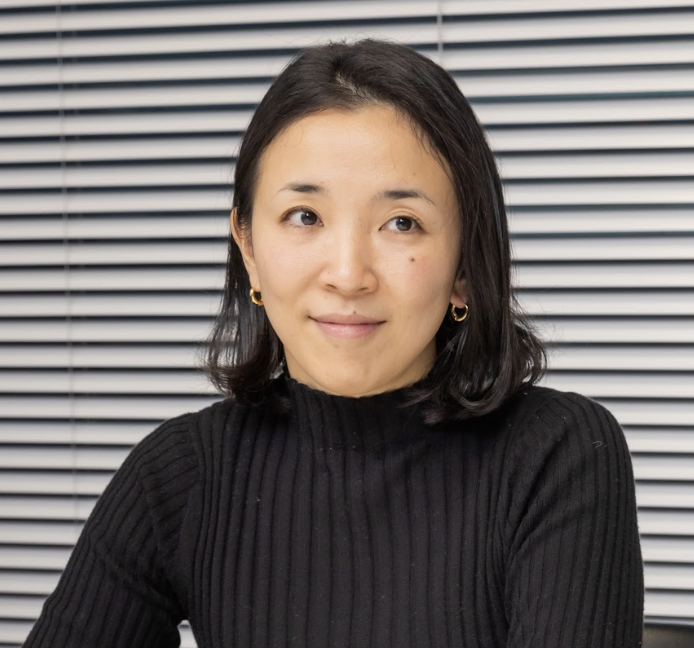
Ryoko Gotoh
Director, TX Entrepreneur Partners (TEP)
AEA Steering Committee
Since participating in the establishment of TEP in 2009, she has been involved in supporting many technology start-ups along the Tsukuba Express rail line. She also participated in the founding of AEA in 2012 and has been deeply involved in its subsequent operation and continues to support technology start-ups in other Asian countries.
We want to develop training services for everyone, anywhere, anytime, all over the world.
–What kind of business does Lifeform AI operate?
Karlos: ‘Future Gym System’, a system that uses AI sensing technology developed by Lifeform AI to provide an innovative training experience.
Katia: The system was originally designed as an office solution, using sensing technology to recognise sitting posture and provide posture correction advice. This system has evolved from there and was developed primarily to improve fitness and sports skills.
At present, particular focus is being placed on the use of the system in fitness at sports gyms. From 20 February to 5 March 2023, a demonstration project was conducted at gyms operated by Tokyo Dome Sports Inc. to teach the correct way to perform exercises such as squats and deadlifts using the Future Gym System.
At the moment, the focus is on muscle training for maintaining good health, but in the future, we are working every day to build bridges between people who want to try something new, even specialising in various sports such as golf or baseball, and the personal trainers who can make it happen.
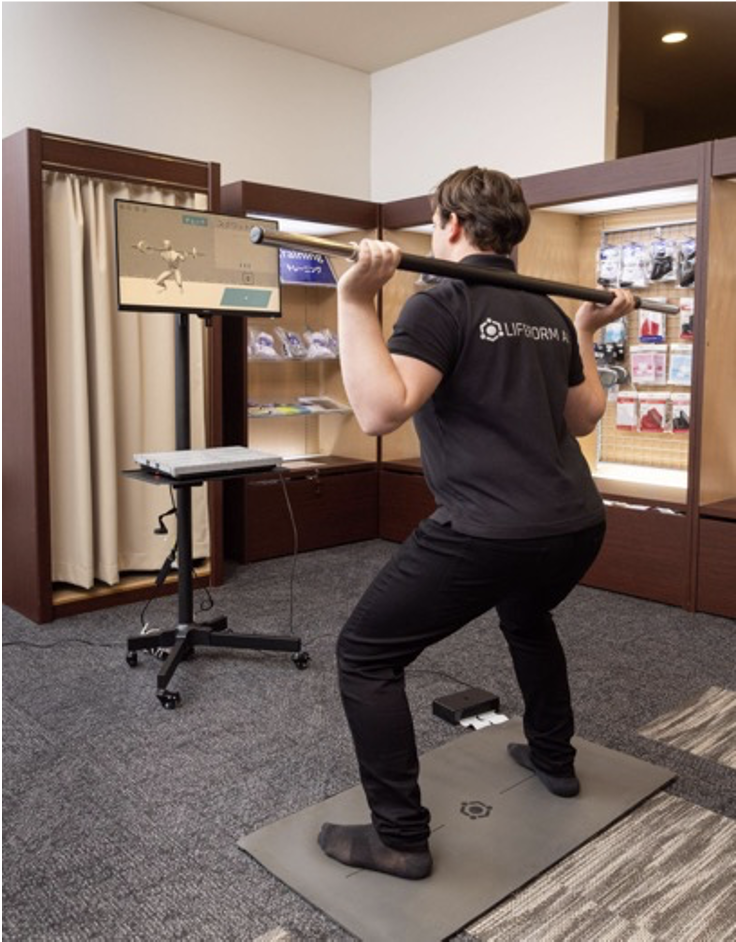
–Why did you decide to develop these systems?
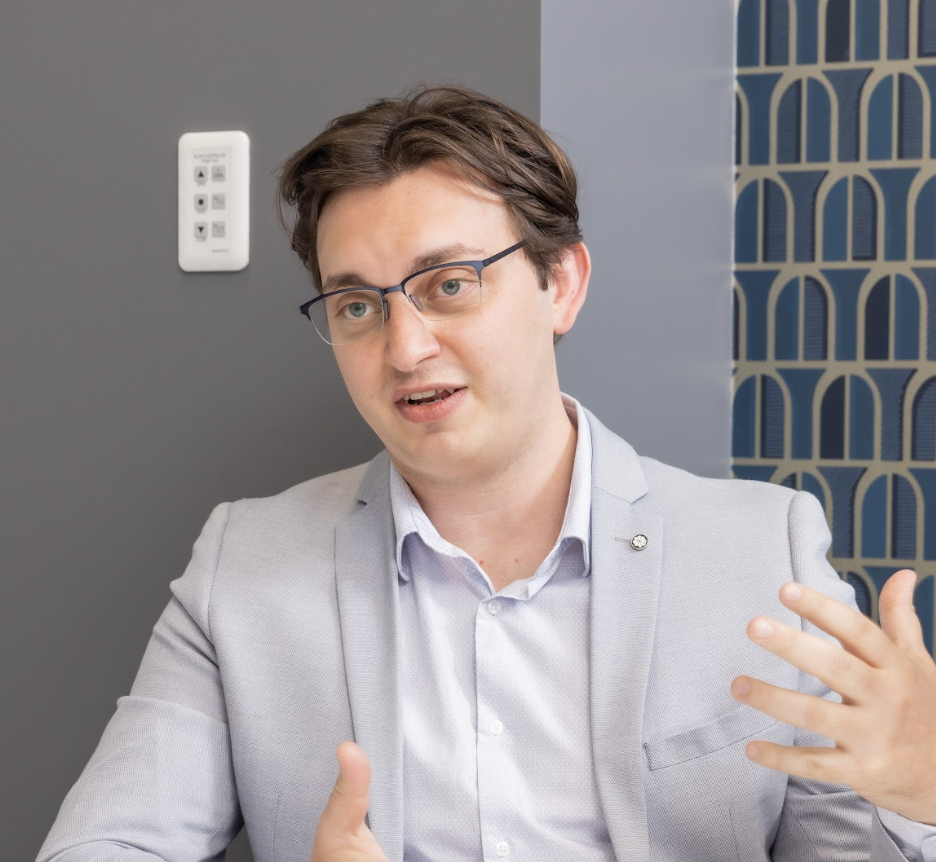
Karlos: I have always had a great interest in the way humans acquire and retain their abilities. I feel that the process itself is the root of what makes human beings so fascinating. This is why I started to look into themes such as sport, exercise, martial arts, dance and the arts in my own mind.
I also had the experience when I was living in Australia that when I wanted to learn Japanese martial arts, there were no trainers nearby and no place to learn. I thought, “If I can learn what I want to learn right away, my progress will be quicker.”
It was then that I, who specialises in robotics, and Katia, who has done research in the field of AI, were inspired to work together to find a solution to these problems. That’s when we turned our attention to ‘tele-training’. Through our technology, we have created the ability to train remotely and from a distance.
–If remote training becomes possible, it could be used by many different people.
Katia: Yes, that’s right. We want to create a platform that can be accessed by anyone, anytime, anywhere.
Karlos: We want to offer this service globally. For example, if someone living in the countryside in Europe is interested in Okinawan Karate, they could connect with a trainer through our service, that would be fantastic.
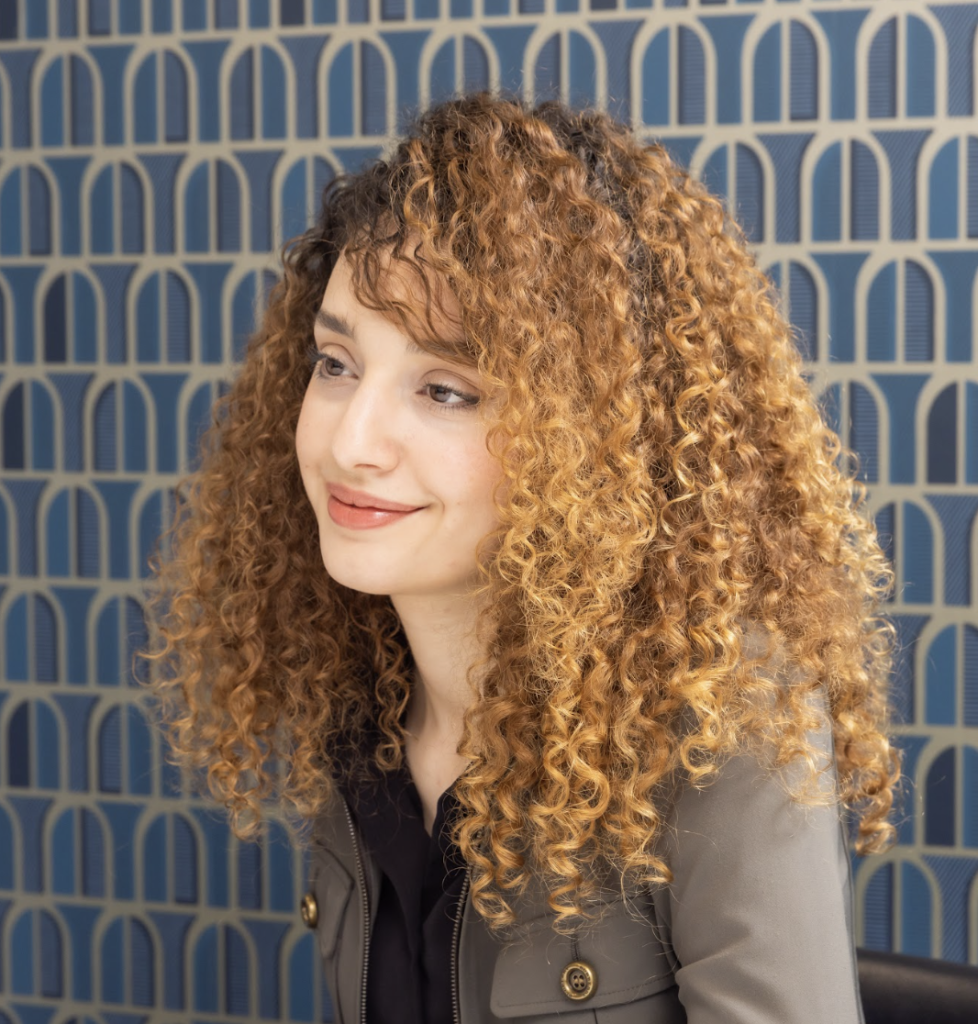
Encounters that they have been able to procure because they raised their hand, even after missing out on the award.
–What kind of support does AEA usually provide to start-ups?
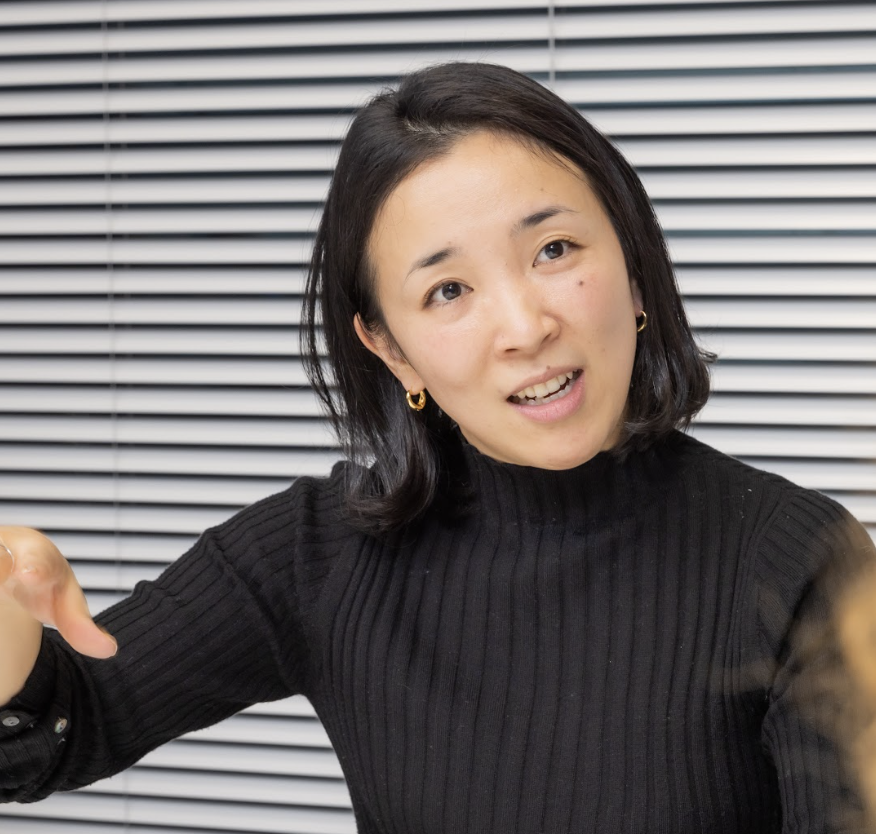
Gotoh: To begin with, AEA is an innovation award. We hold an award once a year, with a month and a half of mentoring leading up to the day of the event. The 6 best start-ups pitch at the award event and the winner will be decided. However, due to COVID-19, the event temporarily went completely online.
Our aim is to push up the level of technology start-ups in Asia. That’s why we try to communicate with start-ups on an ongoing basis, even after the award is over.
Asian start-ups need support to enter the Japanese market, and AEA wants to be a bridge between them and Japanese companies. It would be nice if large Japanese companies were a little more open to international companies, but if we can bring them a little closer to start-ups by acting as a bridge, we would be happy.
–How did Lifeform AI connect with Japanese companies after competing in the AEA?
Gotoh: Before AEA took place, mentoring by Japanese mentors were done to Asian start-ups for a month and a half. Of course, Karlos and Katia also did this. We used slack for mentoring, so all AEA participating start-ups were connected via slack, including alumni who have participated in the past AEA.
I informed immediately after the event to all start-ups that if anyone want to communicate with AEA sponsors or other Japanese companies, please feel free to contact me individually. Even if many start-ups are interested in entering the Japanese market, only few raised their hands for something specific to start, but Lifeform AI sent me a message right away.
Since then, the members of AEA Steering Committee, including myself, discussed how AEA network could be utilised and developed for them. And we successfully started working with Tokyo Dome Sports.
Karlos: While we were still in contact with AEA after the AEA Awards, they connected us with Tokyo Dome Sports, who were interested. I thought that a great opportunity had presented itself.
–How did you prepare for your presentation to Tokyo Dome Sports?
Karlos: At the time, we only had a prototype, but we set out to give the best presentation we could so that we could take advantage of the opportunity. We only had one chance, but we worked on the prototype every day for months, tweaking it so that everyone present would admire it. It was like running a marathon [laughs].
–Did you experience any difficulties in terms of working with Japanese companies due to language or cultural differences?
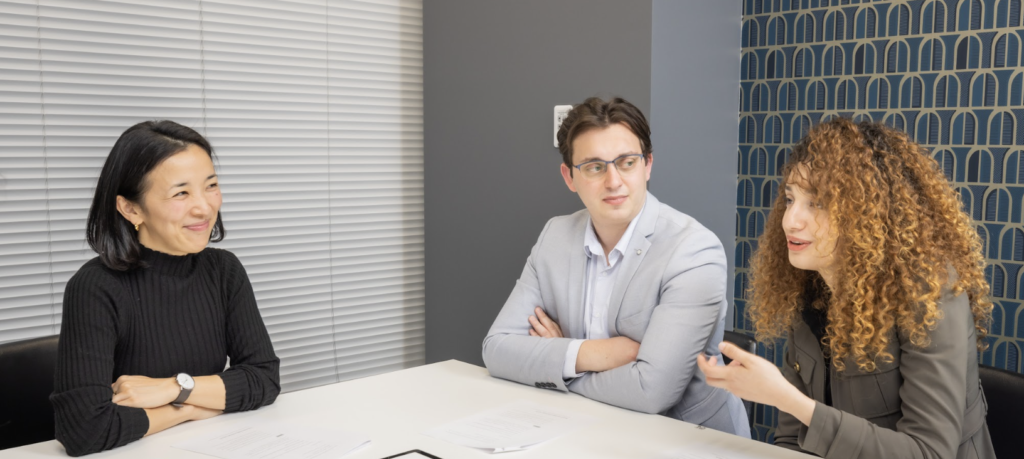
Katia: We had the impression that in Japan it is very important to pay high attention to detail. There were also cultural differences we had to consider during our development phase.
However, in these areas, we also received feedback and support from AEA on how to engage with Japanese companies, and worked hard to navigate the different communication styles.
Gotoh: One of the start-ups participated in AEA in the past and have successfully started their business between Japanese large corporations told us: ‘You will need “patience” when negotiating with a Japanese corporation. But once you get past that period, there will be a deep trust between you which will make a long-lasting relationship.’
I am sure it is same everywhere, but the first step is to respond to their questions and concerns in good faith and win their trust. Otherwise, nothing will get started.
Politeness in communication creates a very important impression for Japanese people. I think that start-ups who have never had business experience in Japan would have difficulties in understanding why they have to go through such things. So I made sure to point out the issue and measures carefully in detail which sometimes could sound too much. It is extremely difficult for start-ups with a different culture to jump in and do this out of the blue.
The demonstration project revealed the next step.
–What is the response to this demonstration project?
Karlos: A key feature of our service is that we provide feedback to users, but the way we provide feedback and its content often changes from market to market. In that sense, thanks to this demonstration project, we have been able to identify measures for the Japanese market.
–What were the specific points?
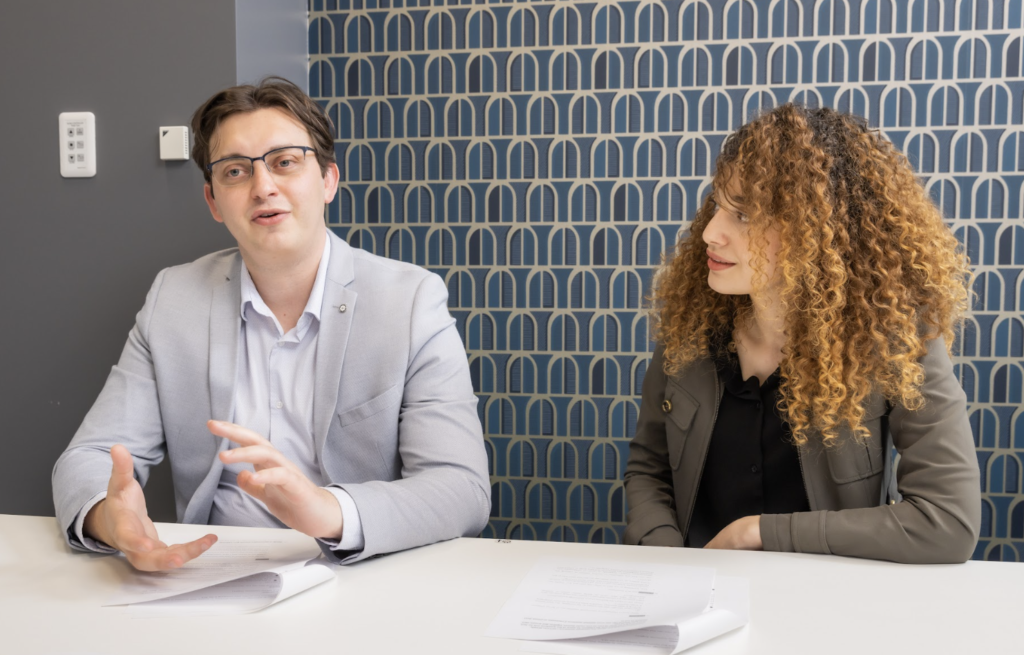
Karlos: In Japan, we found that people tend to prefer apps that are not actually taught by a real trainer, but by a virtual coach. We also found through our experiments, that Japanese people like apps that have a game-like feel to them. Competition features were very popular, and it was impressive to see how participants, noticing their friend’s name on the ranking list, encouraged themselves by saying “I have to beat them! I was impressed by the way they encouraged each other. It’s a motivating factor. I think the game element will also be a key element in the future releases of the service.
I also play games, and I especially love Final Fantasy. I would be happy if we could weave FF-like elements into the apps we develop in the future, and I hope that one day we will be able to partner with a well-known Japanese game company.
What we also didn’t expect anyway was the high percentage of older age group participants. We had designed the service for people in their teens to sixties, but we were surprised that even older participants wanted to engage in sports such as squatting and swimming and get feedback. One factor may have been the change in the market due to the COVID-19.
Katia: This may be a sign not only of COVID-19, but also of the demographics of Japan itself, as an ageing society.
Other people said they wanted to maintain their health and didn’t want to feel inactive, so we felt that our technology could address these pain points.
It is important to do demonstration projects in public and engage with the end users, because there are always new discoveries to be made which may not be clear in the research and development phase.
–What is your strategy for the Japanese market?
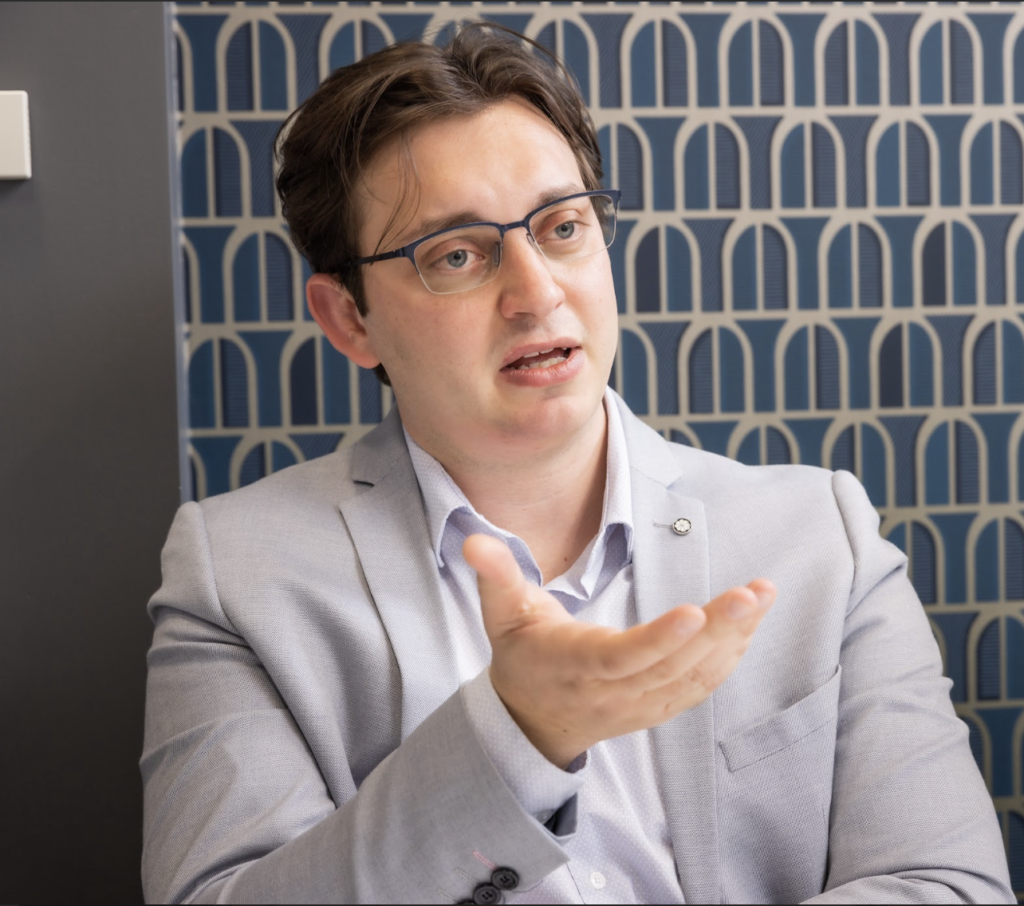
Karlos: You are probably aware that the proliferation of COVID-19 has increased health awareness. I think what has changed in particular is that people are not only going to the gym to work out, but are also incorporating remote training into their daily lives, which they can do at home. The personal training market in Japan is growing rapidly and is expected to grow further in the next three years.
On the other hand, the problem with remote training is that even if you move your body in accordance with videos on YouTube or online programmes, you do not know if you are moving it in the correct way. If you move your body in the wrong way, you can often end up hurting yourself.
That’s where our AI sensing technology comes in, so that participants can receive feedback on whether they are doing it right or wrong. So they can continue to exercise with peace of mind.
AEA acts as a ‘bridge’ between companies.
–From the start-up side, what do you see as the benefits of participating in the AEA?
Karlos: After seeing the medical presentations by other start-ups at the awards, we were a little hesitant to try our hand on the same playing field as the human life-saving start-ups, but we decided to take a chance anyway and jumped in.
But I’m really glad we took up the challenge. You never know what will happen, but just by taking part, you can attract the interest of sponsors and many other people.
Katia: I think the biggest benefit has been that we have found our way into the Japanese sports and fitness market. Especially for foreign start-ups, entering the Japanese market can be like trying to navigate a big maze, so it can take time to adapt, and frequent contact and cooperation with the AEA members helped things to go smoothly.
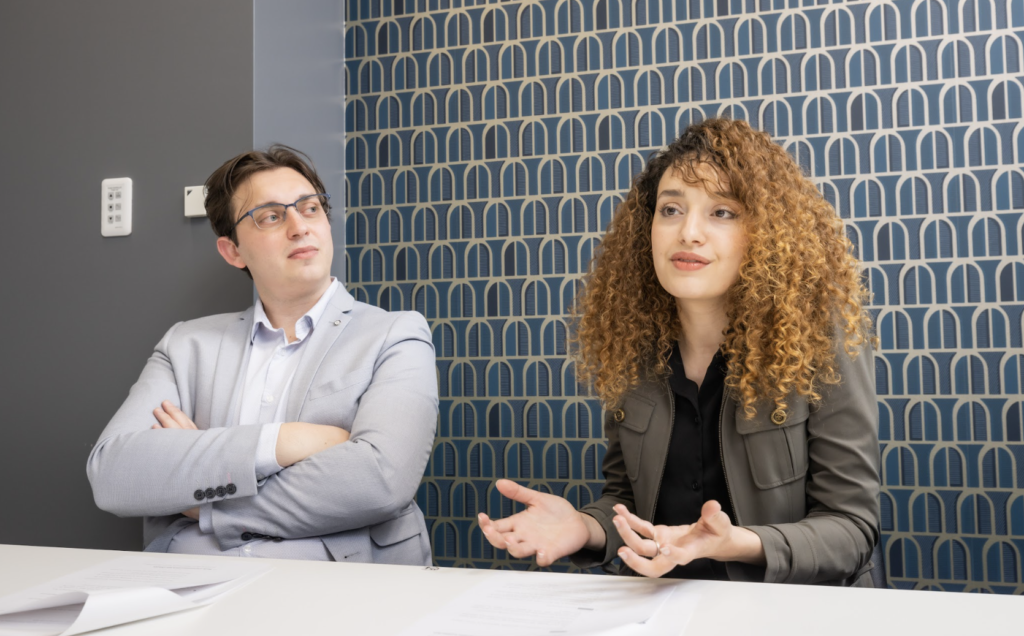
–What does AEA mean to Lifeform AI?
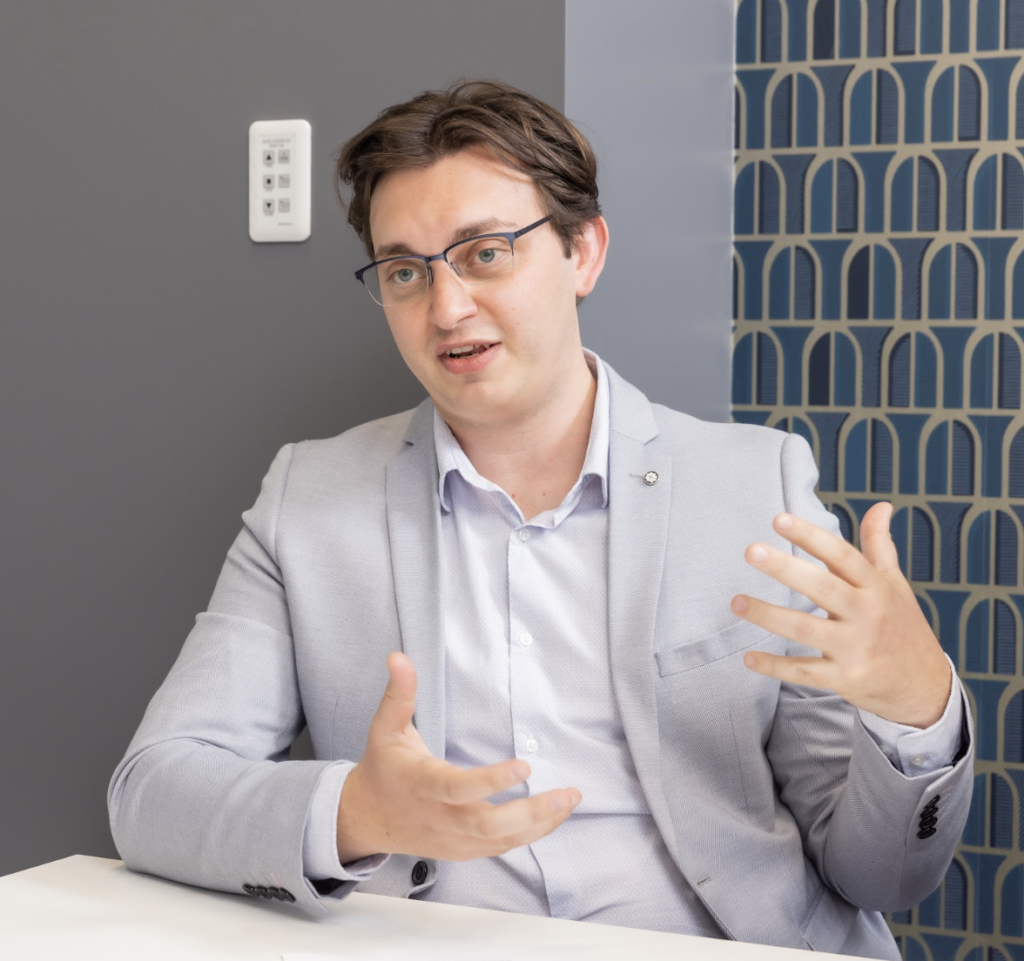
Karlos: It is definitely a bridge.
Thanks to AEA’s continuous support as a bridge between large companies and start-ups, we can focus on building trust with the companies we work with, which is highly appreciated.
If you do nothing and just sit back, you miss out on great opportunities. I am keenly aware that for growth, it is really important to actually experience things.
I would love to see other start-ups join AEA and take the first step!
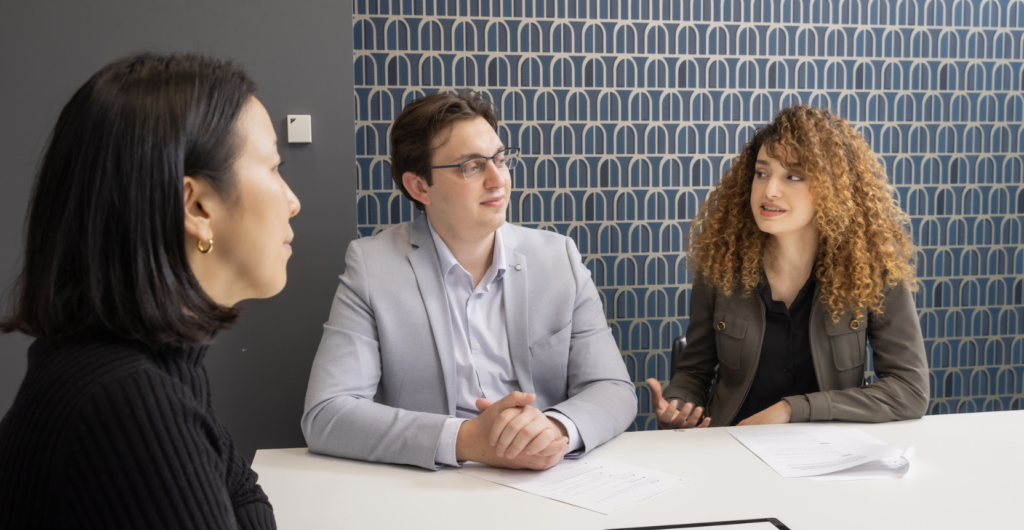
–What kind of business development do you have in mind for Lifeform AI in the future?
Katia: We are also currently working on practical applications for the home, and we hope that you can look forward to more developments by Lifeform AI in the future. We may be able to give good news as early as in a few months’ time, and we hope to report back to AEA soon.
Eventually, we want to grow to have a more international presence and create a global platform for sharing skills anywhere in the world, so that everyone can learn new skills and more.
Karlos: The current service is not the final stage. We are aiming for a place where AI can act as a bridge between the learner and the trainer. The idea is to be able to provide feedback and analysis even when the trainer is not present to accelerate skill learning.
This needs to be simpler and more accessible so that the network can connect quickly and powerfully, so we still need to fine-tune it, but it is gradually starting to take shape. We aim to work hard to add even more advanced features.
–Finally, do you have a message for future participants?
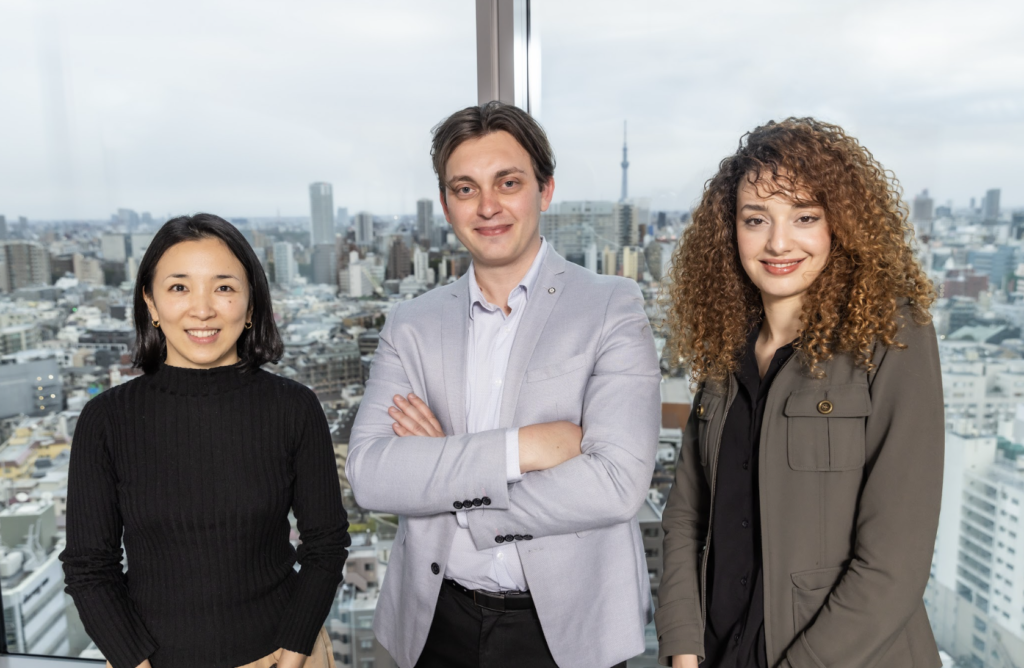
Katia: AEA is an award, so naturally there is a sense of competition and that can be stressful.
However, taking part is beneficial in itself, and even if you don’t win an award, it can be a great way to connect with other companies and meet people. Don’t get too caught up in just winning awards, but just enjoy taking part!
Karlos: I agree. Be bold, don’t hesitate and take the first step. Sometimes you need “patience”, but it can be very rewarding.
The companies and people you can reach here are not people you will meet very often. If you are considering taking part, try it! Don’t miss your chance!
Finally, we really want to thank AEA Steering Committee. We would like to thank not only Ms. Gotoh, but everyone who has been involved with us – without the support of the AEA, it would have been difficult for start-ups from abroad to enter and find opportunities.
We sincerely hope that other start-ups will take a chance like us. Thank you very much.
About the demonstration project: Tokyo Dome Sports.
We asked Mr. Tomita of Tokyo Dome Corporation and Mr. Yamamoto of Tokyo Dome Sports about their impressions of this demonstration project.
New technology experiences for vibrant gym operations.
–What impression do you get from the results of the demonstration project as Tokyo Dome Sports?
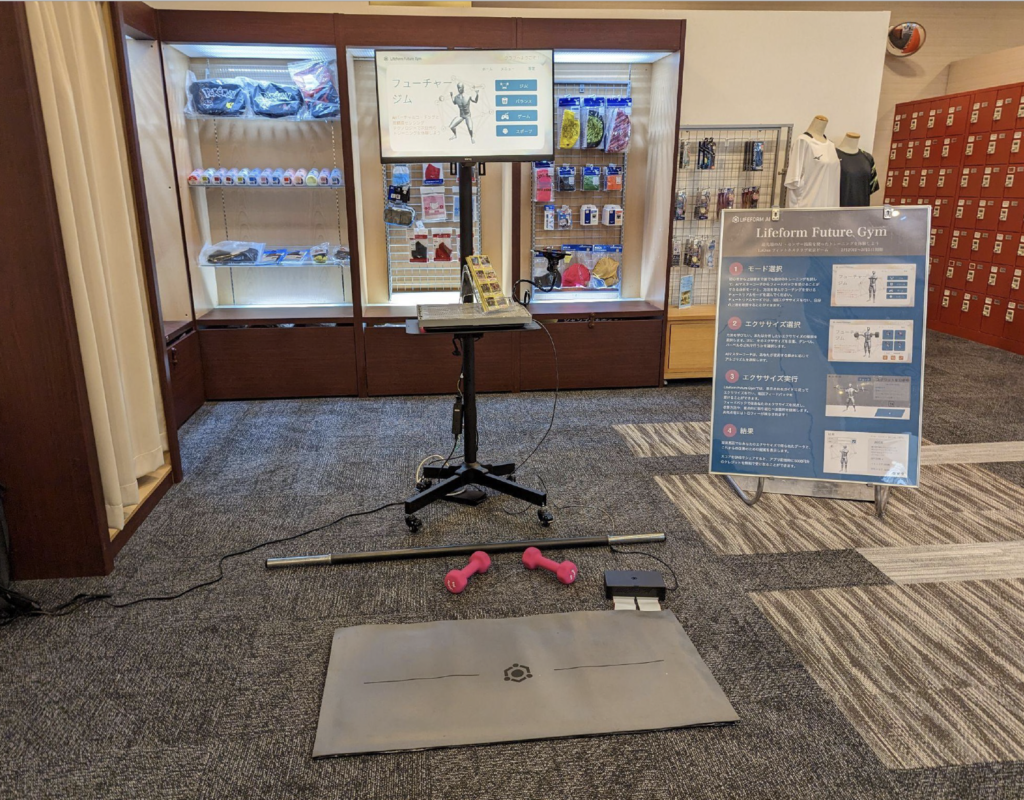
Tomita: This was the first time Tokyo Dome Sports had attempted something like this, and at first we were worried about the operational aspects, but as a result we feel that it was a good thing that we supported the project.
Members were highly interested in this unusual sight and, thanks to Lifeform AI’s encouragement, many customers were able to experience the demonstration. We are grateful for new events like this one, which help to keep the gym running lively.
The opportunity to experience new and surprising technology was a good experience for customers.
–What was the background to your decision to cooperate with this demonstration?
Tomita: We were introduced to the project by Mitsui Fudosan, which led us to accept the offer. We sympathised with the AEA Steering Committee’s aim of continuing to support innovative technologies to solve social problems, and we were happy to provide support.
The AI trainer system used in the demonstration was highly compatible with gym training customers, who were able to train effectively with the correct posture. As mentioned above, we would like to actively promote events in which customers can participate and enjoy themselves.
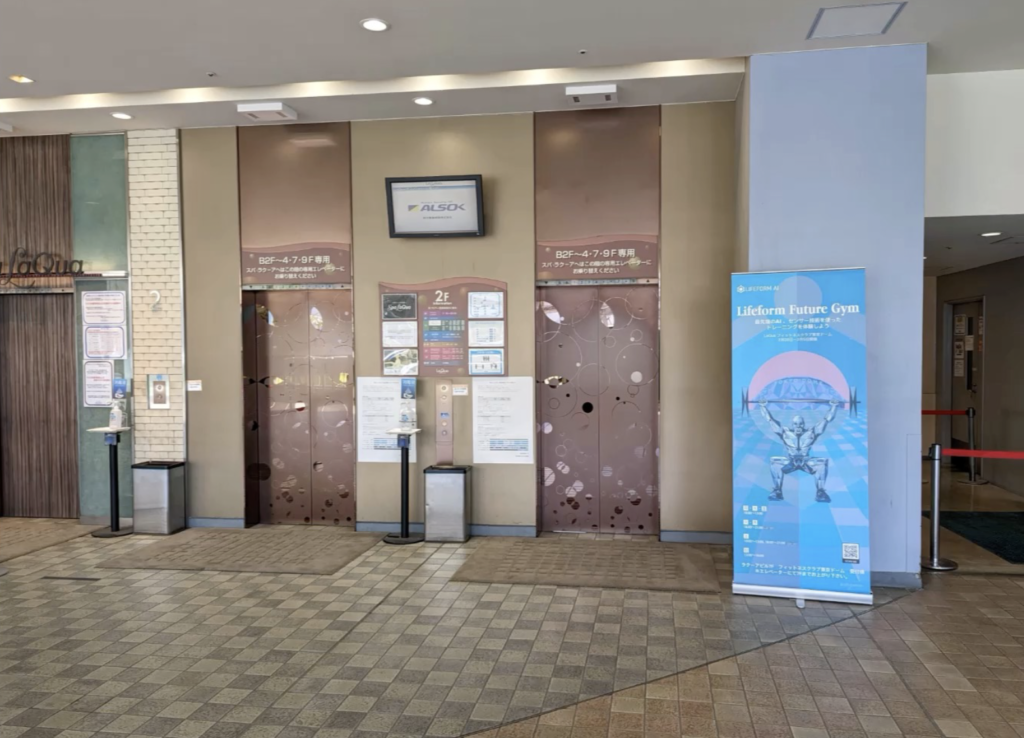
–What are your customers’ reactions and impressions of the product with regard to the demo?
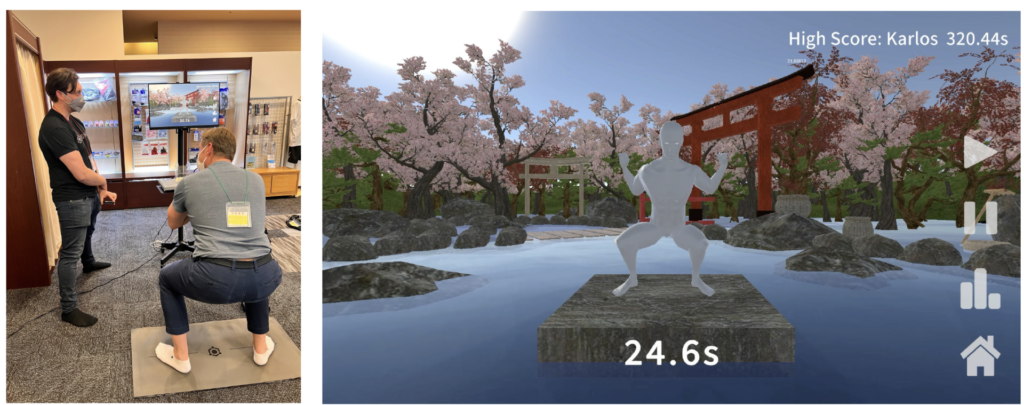
Yamamoto: It was difficult to understand what the AI trainer system was doing at first sight, but fortunately we had set a long period of time for the event, and the interest of our customers seemed to increase day by day. The system that displays the rankings of those who have experienced the trainer was particularly popular, and members seemed to enjoy competing with each other and with their peers.
We are also pleased that the event was an unexpected success and an opportunity for our customers to communicate with each other. Towards the end of the event, the system was updated to make it more game-like and to make it more enjoyable for the participants to learn how to train correctly and efficiently.
–How do you see working with start-ups in the future?
Tomita: Collaborating with start-ups with ground-breaking technology that solves problems in the world has been a new experience for us as well as for our customers. On the other hand, I think the key point for the future is not just to provide support, but how to establish it as a business.
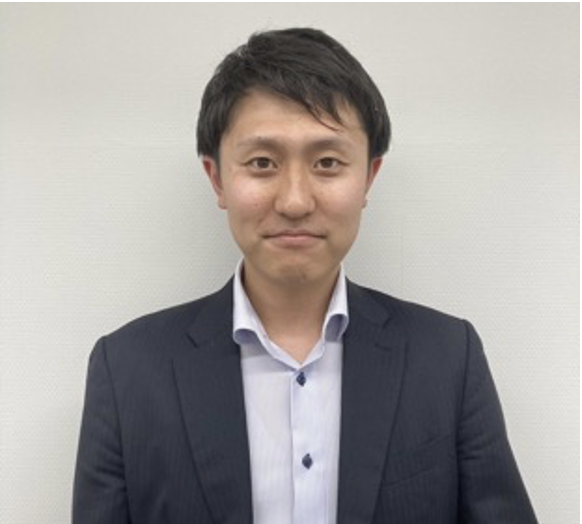
Tokyo Dome Corporation
Section Chief, Sports Facility Operations Office Mr. Shohei Tomita
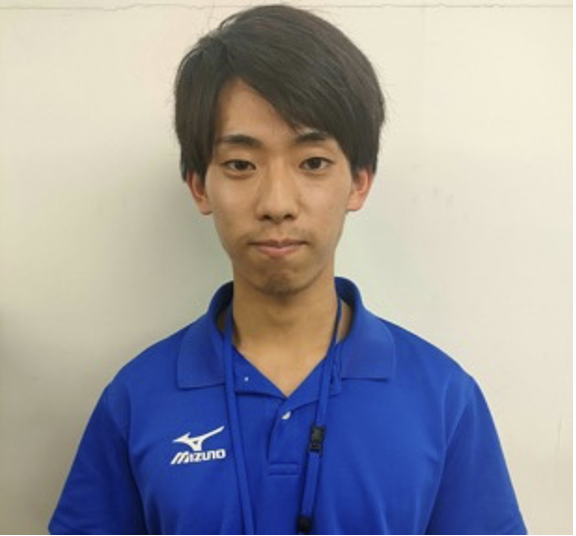
Tokyo Dome Sports Inc.
Fitness Club Tokyo Dome
Training room supervisor/personal trainer
Mr. Sho Yamamoto
Ask the nominator about the attraction of the AEA.
We asked Professor Toshihiko Ouchi of Tsukuba University, who recommended Lifeform AI to AEA, about his work to date.
–Why did you recommend Lifeform AI to AEA?
I recommended Lifeform AI because I am convinced that Lifeform AI is a growing start-up that has launched a product range that solves a wide range of human seating-related problems (back pain, work efficiency, service improvement, etc.) using a proprietary thin pressure sensor (PCT application filed), has joined forces with design and manufacturing partners, and has gained the sympathy of overseas management and investors for its commercialisation.
Furthermore, they have attended the Global Entrepreneur Education at Tsukuba University and I, as nominator, have accompanied them to customer hearings in San Diego to explore overseas markets, confirming the above. Since then, they have been promoting business activities based in Australia and Japan, which is another reason why I recommended them as a team that meets the objectives of the AEA.
–Please let us know about the Lifeform AI’s work at the University of Tsukuba after participating in AEA.
For a private company, the university is not able to provide active support, but we recommend Llifeform AI to participate in events to introduce start-ups in Tsukuba, provide matching support to related industries, and give advice on intellectual property management.
—What do you think is the significance of participation in the AEA for start-ups from university?
In order for start-ups to grow, they need to be active not only in the domestic market but also in overseas markets, and the AEA can be positioned as one of the gateways to success. If you win an award for your entry, you will gain more public attention and support from many organisations, and even if you do not win an award, you will be able to connect with many people and expand the scope of your business activities. The presentation will provide an opportunity for friendly competition as business plans from all over the world can be shared at the presentation.
On the other hand, it will also provide an opportunity for those making recommendations to communicate with start-ups from university that have just started their own business, which will lead to stronger collaboration and promote the implementation of university research results in society, which is the original purpose of the project.
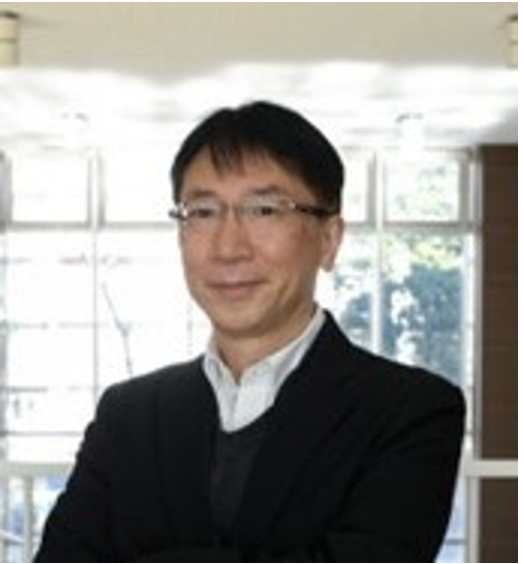
Professor Toshihiko Ouchi, University of Tsukuba
(as of March 2023).


